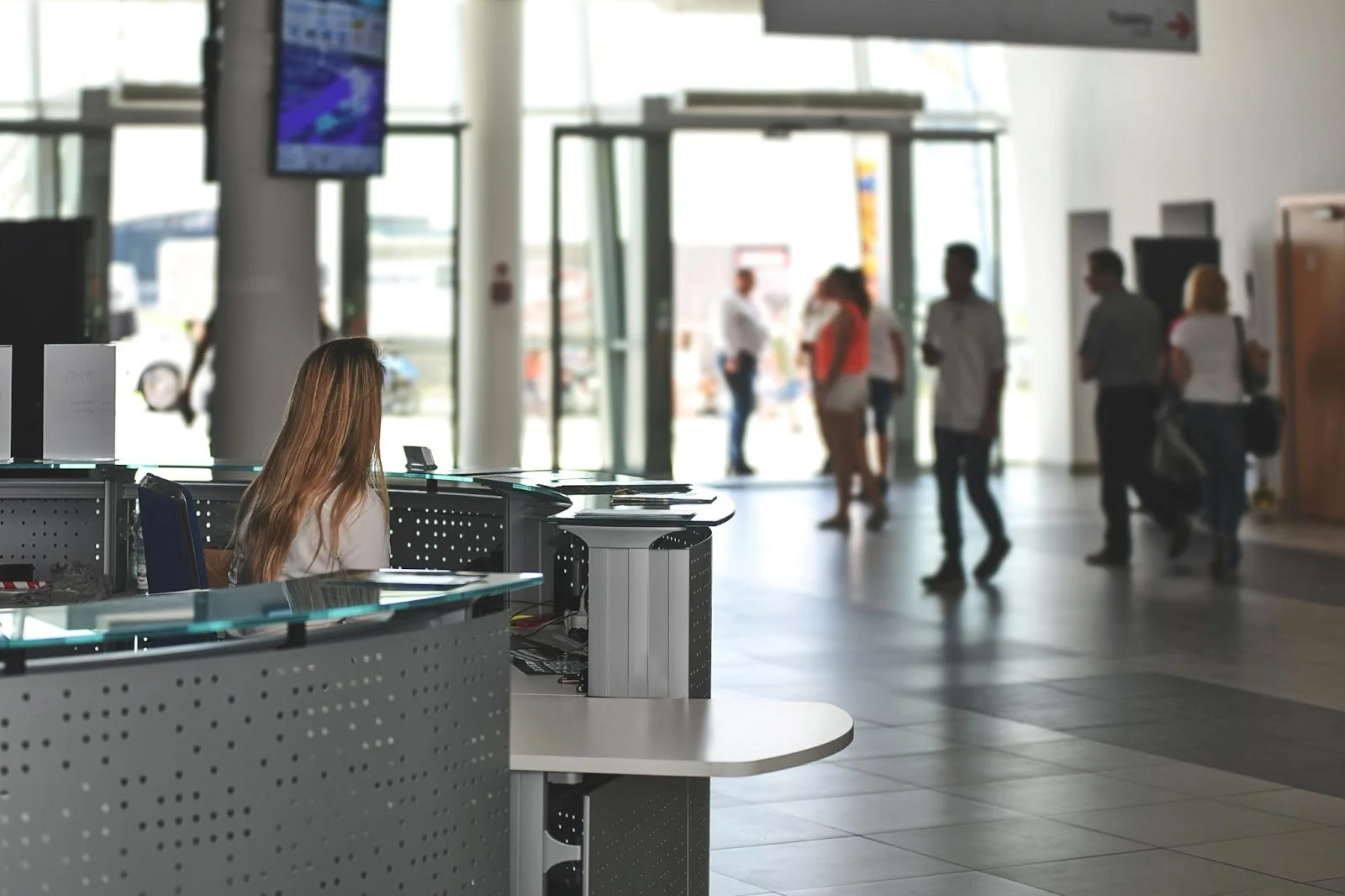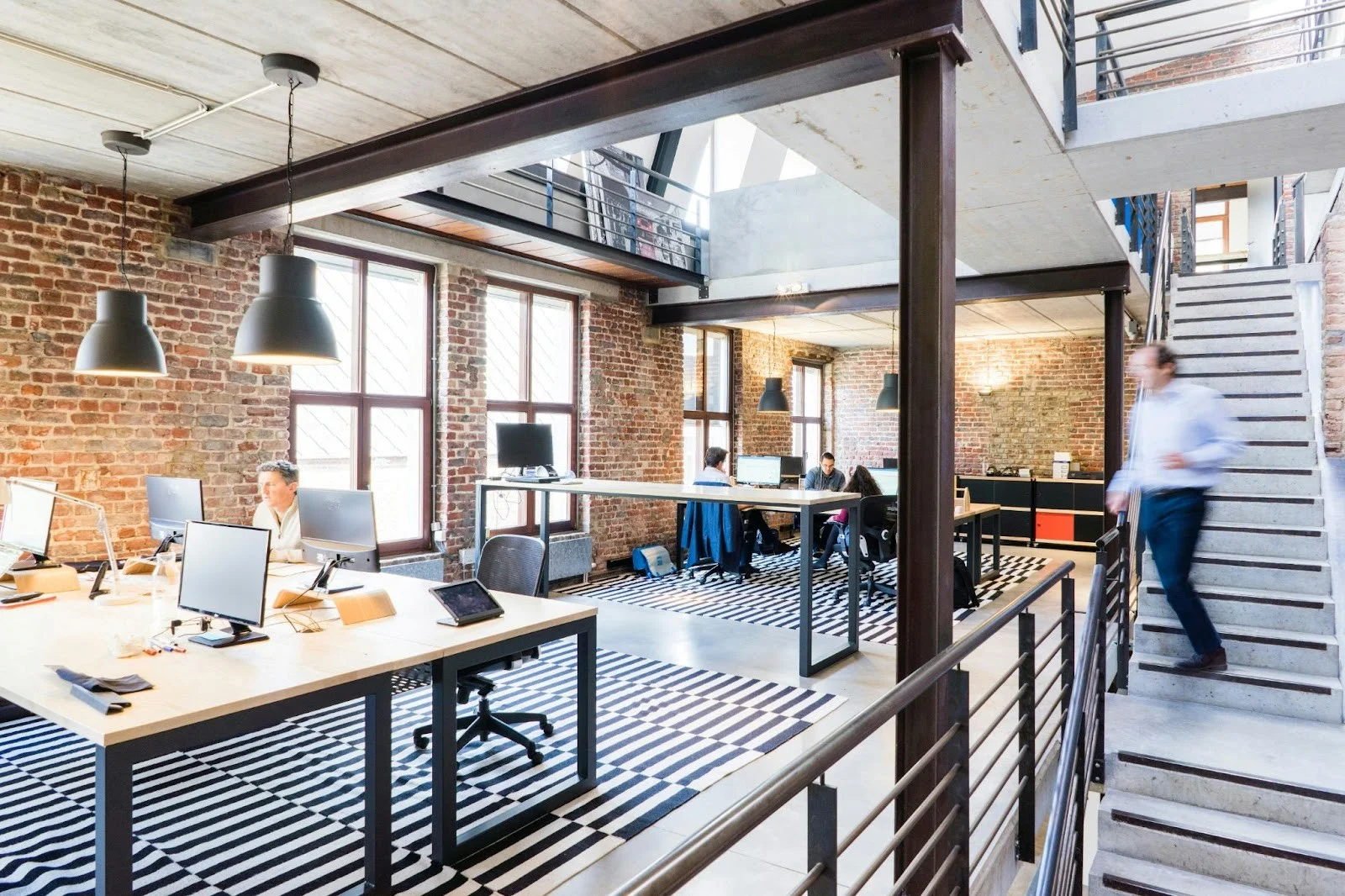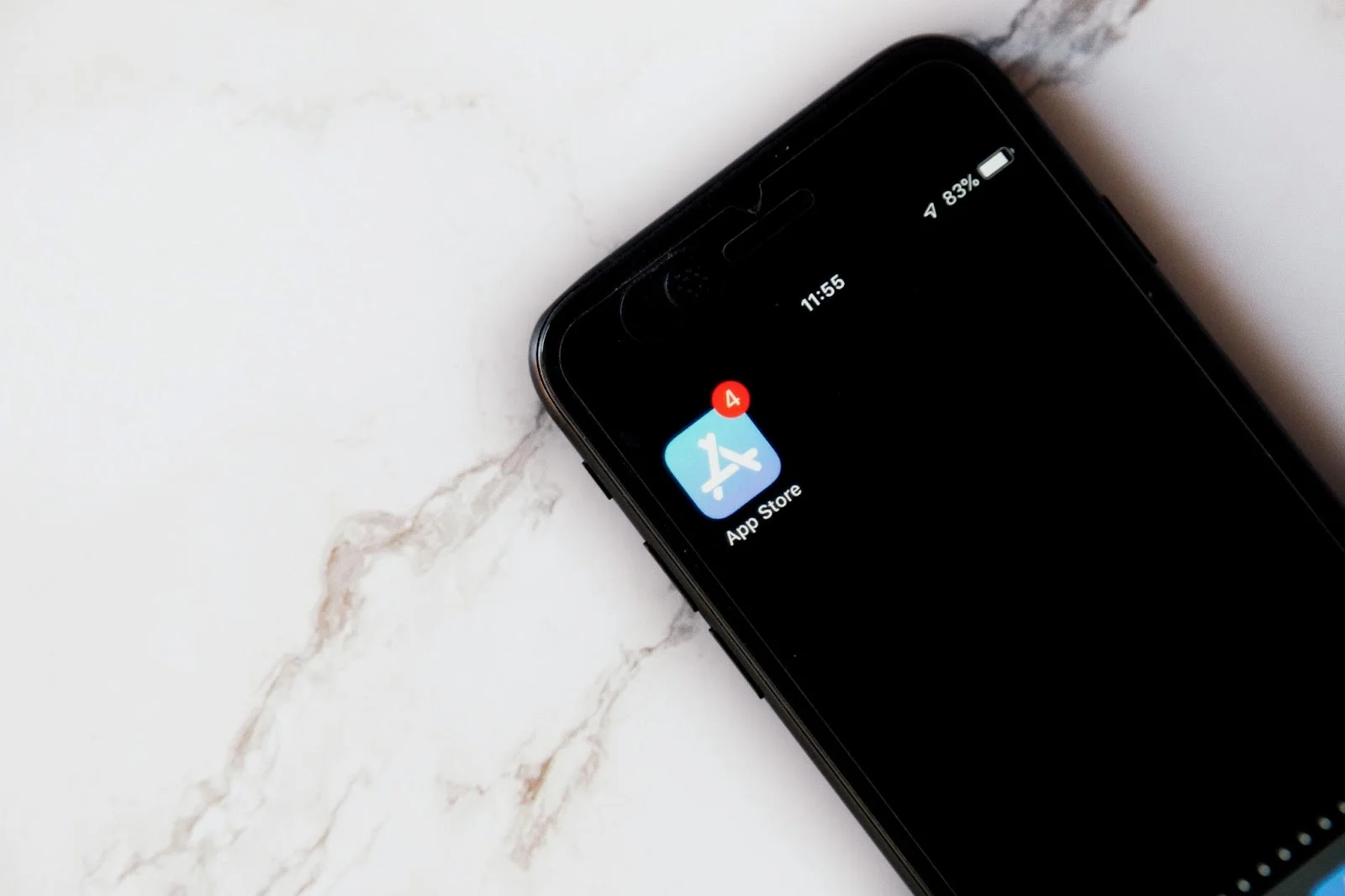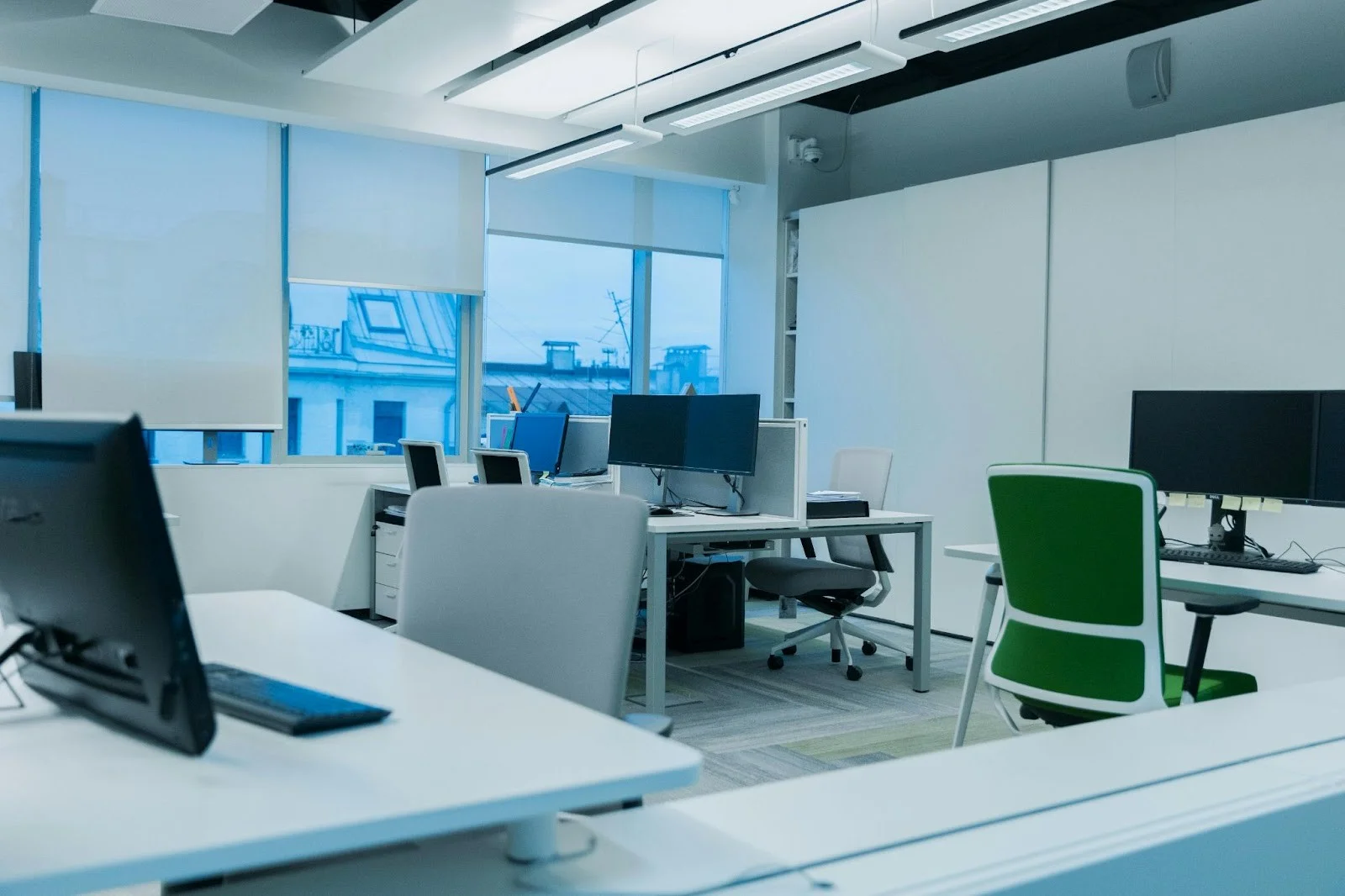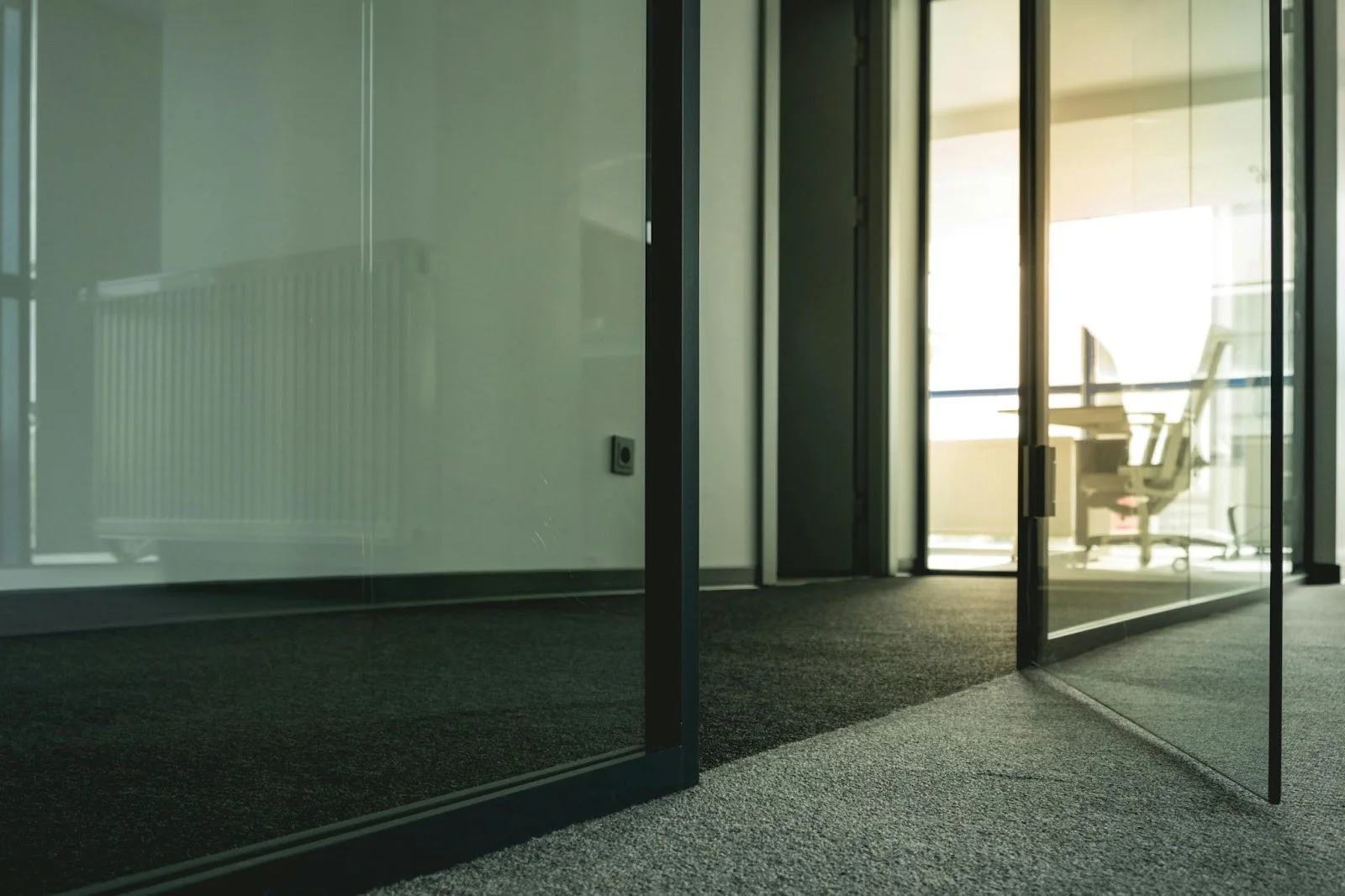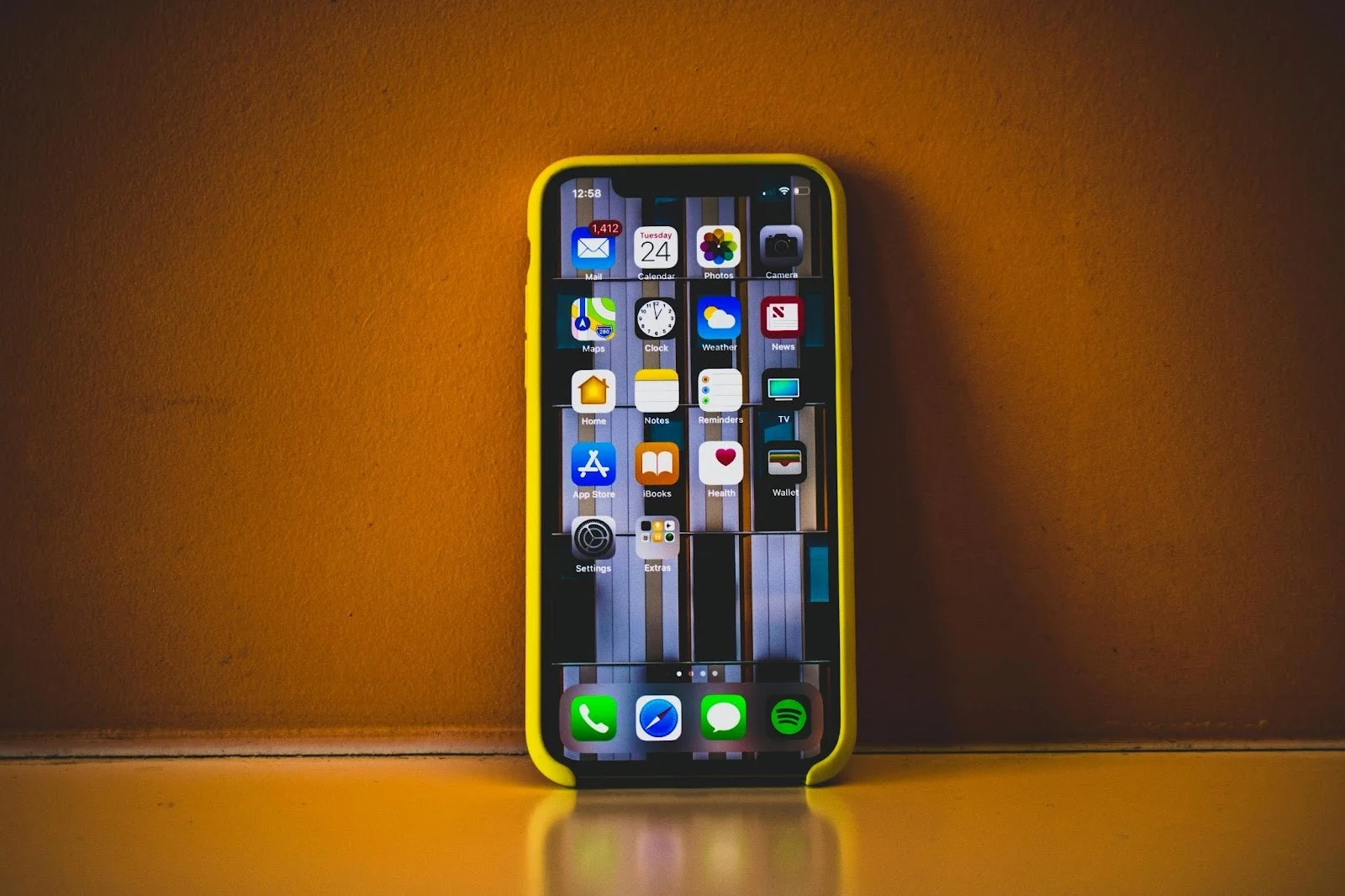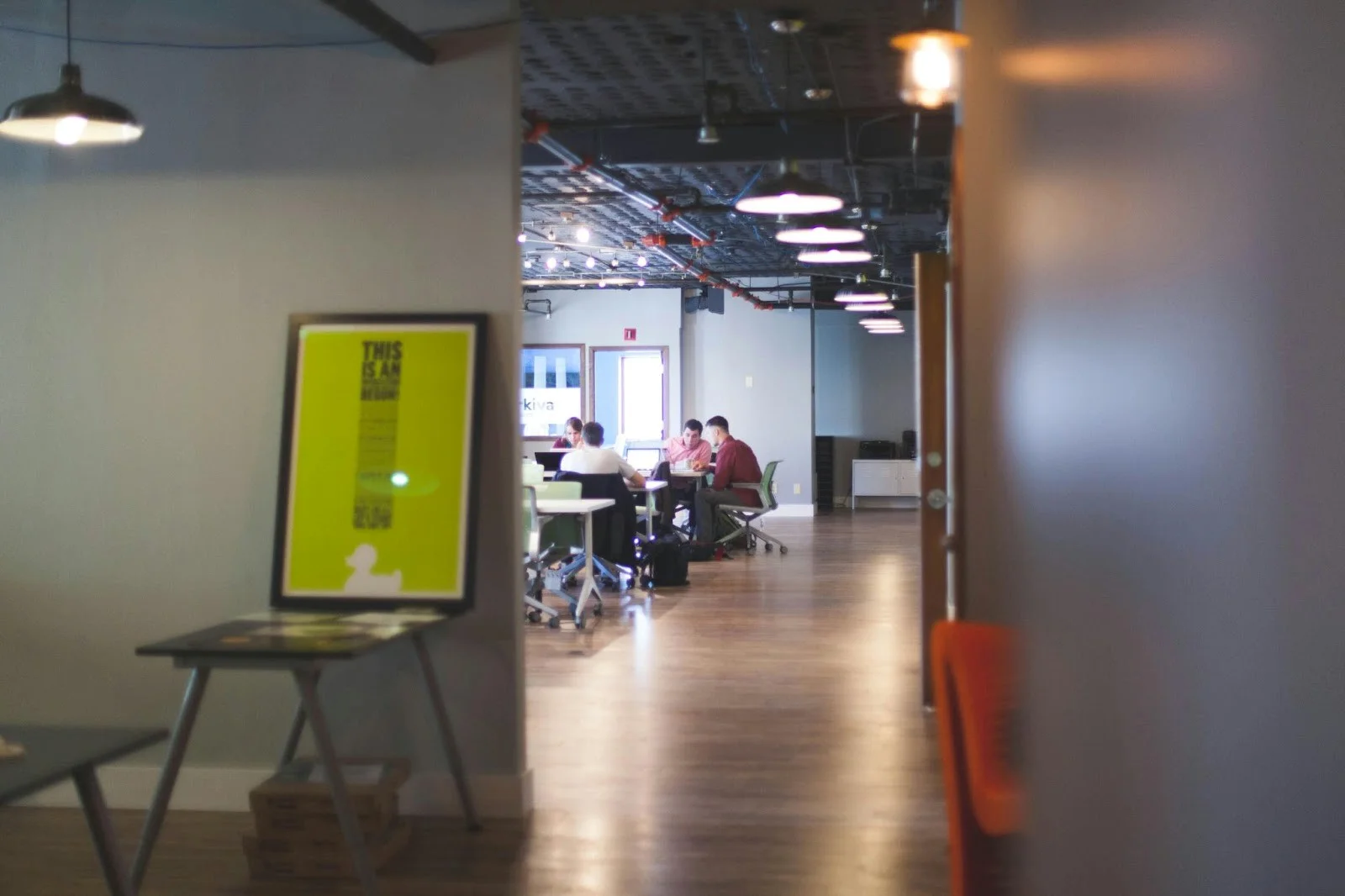It’s exhausting to enter a chaotic workspace. A well-organized office relies heavily on a front desk booking system. That’s where visitor check-ins, desk assignments, and meeting room reservations come together. Having the appropriate booking software in place simplifies scheduling. Confusion disappears, and team members and visitors get more done.
Let’s explore how the right desk booking software can transform your company’s operations—and the office experience that comes with it.
What is a Front Desk Booking System?
At its core, a front desk booking system manages visitor check-ins, desk reservations, and meeting room scheduling. It automates those administrative tasks that take up so much time and energy. Businesses use front desk software to streamline their reception processes and organize their workplaces.
The front desk booking software is your office’s digital receptionist. Your team easily finds available space and equipment. The software reduces the time for everyone to find an office.
A top-notch system gives you real-time availability to allocate your workspace seamlessly. Office hoteling software lets employees reserve desks easily, making the most of your office space. With digital integration, these systems enhance security by tracking visitor and team member check-ins. A well-implemented system gives you the flexibility and productivity you need for hybrid or traditional offices.
Why is DeskFlex the Best Front Desk Booking Software for Modern Offices?
Managing your offices can be made simple. DeskFlex is here to provide modern solutions to modern offices.
Our front desk software is user-friendly, making workspace management simple and efficient. DeskFlex optimizes office space by letting you arrange seating in a way that works for you. Our booking system tracks availability in real time, so team members can easily find and book available workspaces.
The system integrates with your existing tools, improving your workflow and scheduling efficiency. Advanced customization features let you tailor settings to your specific needs. DeskFlex supports hybrid work environments by streamlining desk-sharing policies.
Automated check-in reduces no-shows and maximizes resource utilization. Visitor tracking and contactless check-in components enhance security. The cloud-based platform gives you remote access to book from anywhere. With detailed analytics, you can optimize space utilization and improve workplace efficiency.
How DeskFlex’s Office Front Desk System Works
Our front desk system has features that simplify and improve office management. DeskFlex gives insights into how your office is being used, facilitates staff desk booking, and enables system integration.
Here are the essential features of our front desk management system:
Accessibility on the Go
Workers can reserve desks from their phones using our mobile desk booking apps. DeskFlex’s mobile accessibility lets you make last-minute bookings and rapid modifications to increase process flexibility. Team members can quickly check in and manage reservations using mobile apps.
Alerts & Notifications for Bookings
A reservation app with real-time alerts is super helpful. Team members get notified about:
- Changes in reservation
- Desk reservations in-person
- Future reservations
These alerts keep everyone updated without needing to check the system constantly. Alerts and notifications are another tool that team leaders and managers use to monitor workstation utilization. A front desk management system gives everyone updates on workspace availability.
Updates in Real-Time
Real-time desk availability updates prevent disputes. Managers see which conference rooms or desks are available and which are in use. Updates make space allocation more accurate.
Space Utilization Data
The best desk booking software has space utilization tools. The system filters this data into reports on meeting spaces and desks. Managers can use this data to see:
- Most booked rooms or desks
- Unused spaces
- Peak hours
Companies use this information to cut costs and optimize space usage.
Office Layout Flexibility
With flexible seating, managers can change the office layout to fit the workspace. Workers can choose desks according to their preferred seating or team needs. For some teams, space flexibility helps control specific areas.
Integration with Popular Platforms
The best hotel front desk software is integrated with Microsoft Outlook, Microsoft Teams, Slack, and Google Calendar. Integration allows workers to plan their schedules without jumping between platforms. A more unified workplace and easier tracking will also help managers.
DeskFlex: The Ideal Solution for Office Hoteling and Flexible Workspaces
DeskFlex has a front desk booking system that simplifies workspace reservations and office efficiency. Its user-friendly interface allows employees to easily book desks and meeting rooms and supports flexible work arrangements.
The system integrates with existing office tools, improving operations and productivity. Real-time updates prevent double booking and optimize space usage. As a robust front desk management system, DeskFlex enhances visitor tracking and security protocols. Its customizable features fit the needs of modern offices, promoting a dynamic and organized work environment.
Why DeskFlex’s Front Desk Check-In Software is a Game-Changer
DeskFlex’s front desk software revolutionizes visitor management by automating check-ins and security. Its user-friendly interface simplifies check-in, reduces wait times, and improves guest experience. Real-time notifications alert staff upon visitor arrival, ensuring timely assistance and smooth operations. The system integrates with access control, granting visitors access while maintaining security.
By replacing manual logs, DeskFlex’s desk booking software minimizes errors and simplifies record-keeping. Customizable features allow companies to tailor the software to their needs and flexibility. Analytics provides insights into visitor patterns and helps with resource planning and management. DeskFlex’s cloud-based platform is scalable and offers remote access, fitting all sizes of companies.
Overall, DeskFlex changes front desk operations, efficiency, and professionalism.
How DeskFlex Helps Businesses Save Costs and Boost Productivity
DeskFlex’s desk booking software simplifies workspace management, reduces administrative overhead, and lowers operational costs. Companies can downsize office space by optimizing desk usage, resulting in huge real estate savings.
The office desk booking system supports hybrid work models, flexible scheduling, and unused workstations. Real-time analytics provides insights into space utilization and informed decisions to prevent resource waste. Automated processes minimize manual tasks so staff can focus on the core business.
The Best Front Desk Booking Software for Small and Large Businesses
DeskFlex’s front desk booking system has solutions for businesses of all sizes, simplifying reservations and resource management. Its user-friendly interface allows staff to quickly manage bookings, cancellations, and updates, increasing productivity. Immediate updates on availability prevent overbooking so that you can maximize your office spaces and meeting rooms.
For small businesses, DeskFlex has cost-effective tools to manage limited resources. It has robust features for large enterprises to manage complex scheduling across multiple locations. It integrates with existing tools to create a seamless workflow.
Customizable options let you brand the software to your business. DeskFlex’s best hotel front desk software improves guest experience through efficient check-in and room management. Automated notifications keep staff and clients informed of upcoming bookings and changes.
How to Get Started with DeskFlex’s Desk Reservation Software
Implementing DeskFlex’s desk reservation software simplifies workspace management and increases efficiency and organization.
Step 1: Assess Your Workspace
Evaluate your office layout and identify areas that need reservation capabilities. Knowing your space helps you tailor the system to your needs.
Step 2: Explore DeskFlex’s Features
Get to know DeskFlex’s features, real-time availability, interactive maps, and mobile access. These features simplify the process of booking a desk.
Step 3: Schedule a Demo
Contact DeskFlex to schedule a demo. Seeing the system in action will give you an idea of the user interface and features.
Step 4: Customize the System
Work with DeskFlex’s support team to configure the software to your office’s specific needs so it works optimally.
Step 5: Train Your Team
Provide comprehensive training to your employees on using the system. Providing hands-on training guarantees user adoption and optimizes the software’s advantages.
Step 6: Monitor and Optimize Usage
Use DeskFlex’s analytics to track reservation patterns and space usage. The data will help you make informed decisions to improve efficiency.
Follow these steps, and your business will be up and running with DeskFlex’s office desk booking system in no time.
Conclusion: Choose DeskFlex for the Best Front Desk and Desk Booking Software
DeskFlex’s front desk software simplifies reservations and increases efficiency and customer happiness. A user-friendly interface makes booking a breeze and reduces admin work and errors. Real-time availability tracking prevents overbooking. Customizable options. The system seamlessly integrates with the currently available tools.
FAQs
What is desk booking software?
Desk booking software—or desk management software—is a digital tool that lets employees reserve workspaces as needed. That flexibility is key to supporting employees in a changing work environment. Real-time desk availability allows users to select the spaces that best suit their needs and tasks. Interactive floor plans, mobile access, and integration with other workplace tools all enhance the user experience.
What are the advantages of using hotel front desk management software?
Hotel front desk management software streamlines operations by automating those time-consuming tasks—reservations, check-ins, and check-outs. That means fewer manual errors and happier guests. Guests get the rooms they want quickly, and hotel staff can respond to their requests just as quickly. Real-time data on room availability helps hotel staff manage resources effectively.
What are the best property management system features for hotels?
Hotel property management systems are designed to give you control over multiple locations from one place. They handle bookings, cancellations, and modifications with ease. Advanced reporting and analytics give you valuable insights into how your hotel is performing and what your guests like. Staff can manage operations on the go with mobile accessibility.
What features should desk booking software have?
An intuitive interface that makes it simple for employees to navigate and book a workspace. Real-time availability tracking prevents those double bookings and optimizes space utilization. Interactive floor plans help employees visualize and pick their preferred workspaces. Mobile compatibility means employees can book a workspace from any device. Integration with calendar systems streamlines scheduling and boosts productivity.
How can we benefit from desk booking software?
When you implement desk booking software, you can optimize your workspace utilization and reduce real estate costs. You support flexible work arrangements, which boost worker satisfaction and productivity. You get data on space usage to inform your office planning decisions. Automation minimizes administrative tasks and errors. And by coordinating their in-office schedules effectively, teams can foster a more collaborative environment.

